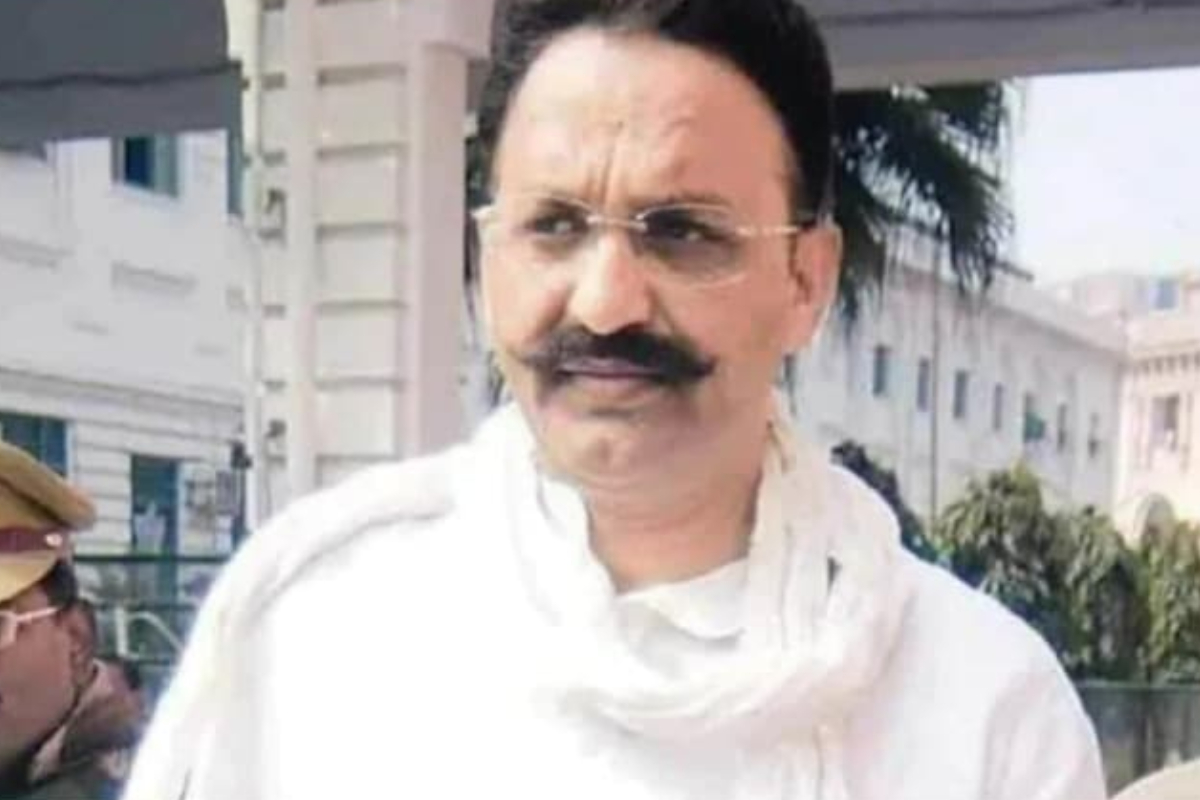

A court in Uttar Pradesh on Friday announced five-year rigorous imprisonment and levied a fine of ₹50,000 on jailed don-turned politician Mukhtar Ansari under the Gangsters Act in connection with the murder of jail superintendent RK Tiwari in 1999.

A court in Uttar Pradesh on Friday announced five-year rigorous imprisonment and levied a fine of ₹50,000 on jailed don-turned politician Mukhtar Ansari under the Gangsters Act in connection with the murder of jail superintendent RK Tiwari in 1999.
This is the first time that Ansari, a muscle man from eastern Uttar Pradesh, has been convicted in any case. At least 59 cases have been filed against him, which are in different stages of trial.
It took almost 23 years of trial before Ansari was convicted in a murder case. The police had registered a case against 25 persons and examined 20 witnesses to prove the case in court.
In his order, Judge Dinesh Kumar Singh said, “It is not in dispute that several FIRs and charge sheets for offences, which are provided under the definition clause of Section 2(b) of the Gangsters Act, were registered against the accused-respondent and the charge sheets were filed against him, including in the case of the murder of the Jail Superintendent of District Jail, Lucknow.”
Tiwari was killed in the busy Hazratganj area of Lucknow in February 1999.
He said that acquittal or conviction is immaterial for invoking the provisions of the Gangsters Act against a person, who is otherwise a member of the gang and allegedly commits offences, which are defined under Section 2(b) of the Gangsters Act.
If the FIR is registered or the charge sheet is filed and the person is a member of the gang, which is defined under Section 2(b) of the Gangsters Act, it fulfils the ingredients of Section 2 of the Gangsters Act and he can be punished under Section 3 of the Gangsters Act.
“The trial court has acquitted the accused-respondent on the ground that the accused-respondent was acquitted of all the offences that were mentioned in the gang chart. The gang chart was approved and the FIR came to be registered against the accused respondent along with others,” Singh said.
This Court is of the view, on considering the law laid down by the Supreme Court and this Court, as discussed above, and carefully reading all the provisions of the Gangsters Act, that the accused-respondent was a member of the gang and for his criminal activities, several FIRs and charge-sheets came to be registered and submitted against him for offences, which are defined under Section 2/3 of the Gangsters Act.
Referring to the previous order of the court, Singh said, “The acquittal of the accused respondent for turning the witness hostile or otherwise is not a material aspect. The trial court has grossly erred in acquitting the accused-respondent vide the impugned judgement and order. The gang chart was proved in court as documentary evidence.”
“In view of the foregoing discussion, this Court is of the view that the accused respondent is a gangster and he allegedly committed several offences and, therefore, he is found guilty of an offence under Section 2/3 Gangsters Act,” the Judge said.
“Therefore, the impugned order dated December 23, 2020, passed by the learned trial court is hereby set aside. The accused respondent is sentenced to five years of rigorous imprisonment with a fine of ₹50,000,” he said in his order.